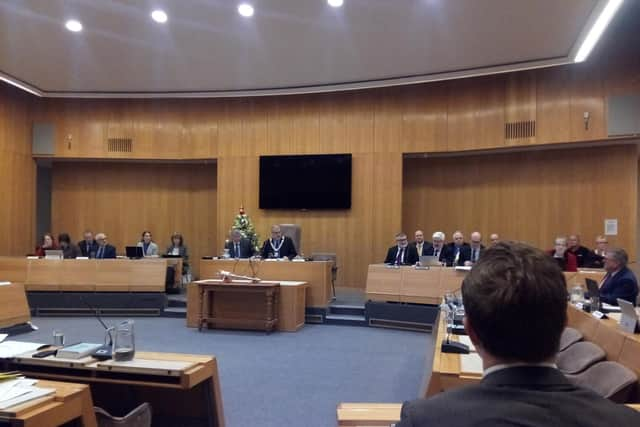Normal rules suspended as coronavirus crisis forces Bedford planning decisions to be made behind closed doors
and live on Freeview channel 276
Normal rules suspended as coronavirus forces planning decisions to be made behind closed doors
Major planning decisions will be taken behind closed doors until the coronavirus crisis is over.
Advertisement
Advertisement
Bedford Council’s planning committee has decided to delegate all its decisions to senior officers for a temporary period of four months so they can avoid up to 100 people being in attendance for controversial decisions.


But, in an amendment to a proposal, elected councillors decided to keep their hands on the wheel by making sure that political group leaders, the chair of the planning committee, and the chief executive can make call ins to scrutinise individual decisions.
Monday’s planning committee also extended a cooling off period to allow call ins to be made seven days later than normal, up to 28 days after planning officers make decisions.
In her report to the committee, Sue Lyons, the chief officer (legal and democratic services) said the reason for the recommendation was to “remove as far as possible the potential for the spread of coronavirus among members, officers and the general public.”
Advertisement
Advertisement
Bedford Borough Council’s once a month planning meetings can be robust events, sometimes involving moving from committee room one at borough hall, to the bigger council chamber.
The committee also has nine elected members and up to six officers as well as at least 50 people, and sometimes up to 100, the committee report said.
The report recognises that the decision poses a risk that public involvement will be reduced and that applicants may feel their matter has not been fully considered.
But the report reads: “The risk is considered to be extremely low since the current planning process allows for full representation to be made by written submission and for any decision made by officers to be the subject of a comprehensive report.”
Advertisement
Advertisement
The council has been advised by the government that it should avoid promoting situations where individuals might gather in a mass or in situations which may be conducive to the spread of the disease.
Planning committee meetings are held in public and there is no mechanism available to control numbers attending in what is a confined space.
“It is considered that such meetings present a clear and obvious health risk,” says the report. “The extended scheme would apply during the period that the disease is considered likely to have the greatest effect but the issue will be reviewed as circumstances change.”
The council has delegated more and more decisions over the years, to such an extent that the council estimates that 90 per of the council’s planning business is currently delegated from the planning committee.
And the report adds: “There is no legal reason why the council could not delegate 100 per cent of that planning business to officers.”